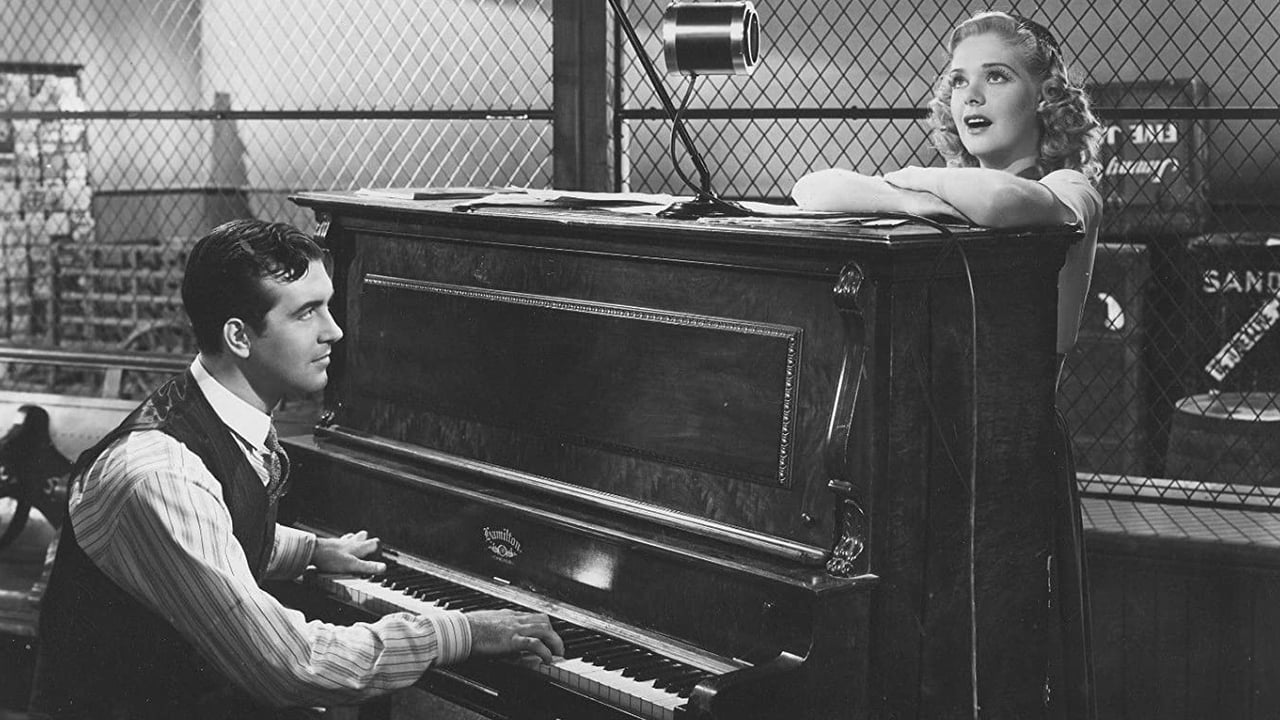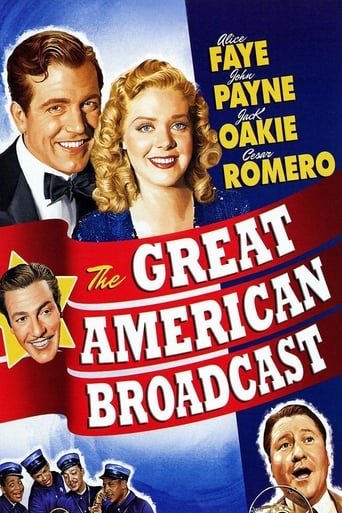

You know those Fox musicals: dreary plots, dragged-out playing times, benumbed direction, uninteresting photography, excruciatingly familiar casts, undistinguished or antiquated old-fave scores. This one, with less production values than usual, actually has a fun if unremarkable plot, pretending to be about the history of radio, but really just an excuse to let its stars do what they do best: Alice Faye to sing in her throaty, comforting contralto, John Payne to look handsome (he also warbles a bit, and not badly), Jack Oakie to clown (less annoyingly than usual). Mack Gordon and Harry Warren wrote many gorgeous ballads; here the keeper is "Long Ago Last Night," and it's a corker. It moves fast--positively at a gallop, by Fox standards--and though there are anachronisms everywhere, in the costumes and the dialog and the sets, this time you don't mind. A very entertaining, unpretentious Fox musical.
... View MoreAlice Faye, John Payne, Jack Oakie, and Cesar Romero are part of "The Great American Broadcast," a 1941 20th Century Fox musical about the beginning of radio broadcasting. It's complete fiction, of course, but peppered with some wonderful singing by Faye and the Ink Spots, magnificent dancing by the Nicholas Brothers, and some good comedy bits by the Wiere Brothers.Payne and Oakie play partners in a radio venture, financed by Romero. They're both in love with the pretty Faye. You've seen this plot a million times.This is worth seeing for the cast. Romero is very elegant as the money man, Chuck, Payne is handsome and sings well, and Oakie is extremely likable. Besides the specialty numbers, there is footage of the Dempsey-Willard fight in 1919.The older folks will especially love this one.
... View MoreFew middle-aged people now even remember the waning days of big time network radio, much less its prime time from the late 1920s to the mid 50s. When I first became aware of radio, about 1930, the networks had been operating for some time. Nothing in this movie would tell me how long. The signals were, indeed, carried over telephone lines. In fact, by the late 30s, at least, telephone cables consisting of thousands of wires in a lead sheath carried larger gauge wires in the center to provide a cleaner signal for radio transmission. Broadcasts originated mostly in New York, with quite a few from California, some from Chicago, and a few from other places around the country -- like Nashville. If it was necessary to switch the feed from, say, New York to Hollywood for a special interview, it took about 5 seconds for the phone lines to be reconnected in the opposite direction. It was a fun time, that this movie pretends to have invented. When it originated, the people -- broadcasters and listeners -- must have been fully as excited about it as the movie depicts.The plot of the story is one we've seen in at least a dozen films: boy steals friend's girl; friend and girl succeed big in some enterprise, boy, left out, becomes jealous and disappears; boy turns up just in time to observe girl's ultimate triumph. The enterprise may be a business, a farm, or a mine, but more commonly it's an act or dramatic career. The story is always stupid, and this film is no exception.Still, the music featuring Alice Faye, a couple of numbers by the Ink Spots, the hilarious Wiere Brothers, and the incomparable Nicholas Brothers, and even John Payne in one of his early singing roles, makes for eminently watchable entertainment, with the bit of questionable broadcast history thrown in for good measure. Despite the too familiar plot, it's far better than the average musical of the 30s through 50s. I loved it enough to save the recording I made off the cable 15 years ago, and liked it just as much when I dug up the tape this week.
... View MoreWhile it is almost impossible to bypass the beauty of Alice Faye, I wish to mention that the plot of this cute fluff pic contains an interesting idea: hook up radio stations in a coast-to-coast network via the telephone. One hears so many arguments (political and otherwise) about "Who Invented the Internet?" It's easy to forget our honorable ancestors in the early days of Radio (when that name drew enough awe to have SciFi and even strange Westerns use it as a buzzword). The idea of telephone hookups apparently gave audiences a thrill.
... View More